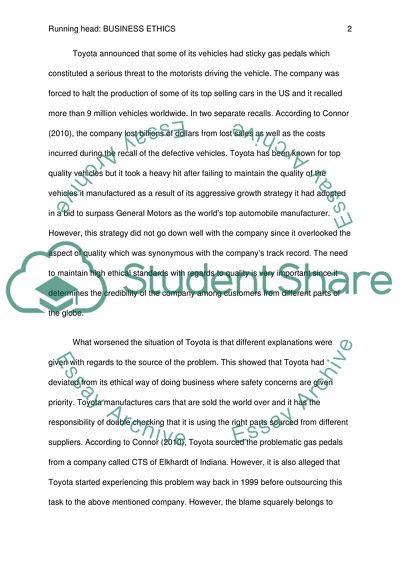Cite this document
(The Concept of Business Ethics in Toyota Case Study Example | Topics and Well Written Essays - 1500 words - 13, n.d.)
The Concept of Business Ethics in Toyota Case Study Example | Topics and Well Written Essays - 1500 words - 13. https://studentshare.org/ethics/1795875-business-ethics
The Concept of Business Ethics in Toyota Case Study Example | Topics and Well Written Essays - 1500 words - 13. https://studentshare.org/ethics/1795875-business-ethics
(The Concept of Business Ethics in Toyota Case Study Example | Topics and Well Written Essays - 1500 Words - 13)
The Concept of Business Ethics in Toyota Case Study Example | Topics and Well Written Essays - 1500 Words - 13. https://studentshare.org/ethics/1795875-business-ethics.
The Concept of Business Ethics in Toyota Case Study Example | Topics and Well Written Essays - 1500 Words - 13. https://studentshare.org/ethics/1795875-business-ethics.
“The Concept of Business Ethics in Toyota Case Study Example | Topics and Well Written Essays - 1500 Words - 13”. https://studentshare.org/ethics/1795875-business-ethics.


